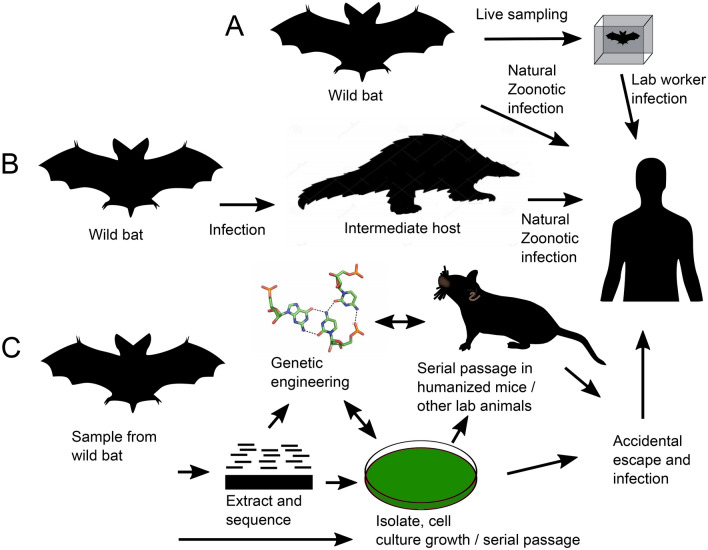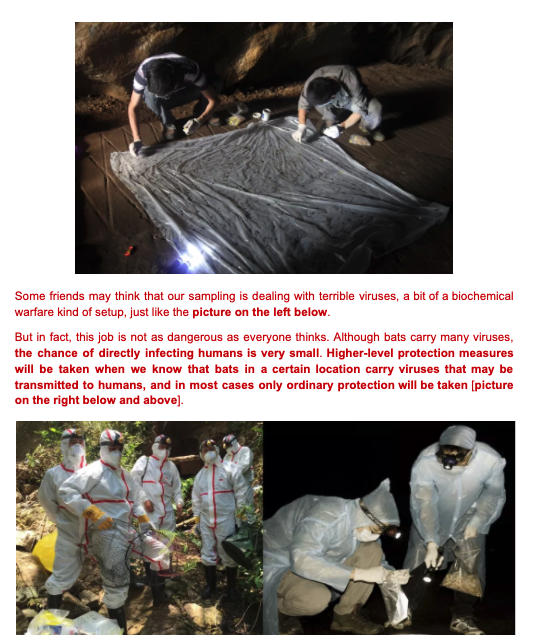The most likely zoonosis in the wild is a sampling accident
Here is a nice visual way to summarise the various hypotheses:

- a Direct infection from bats to humans either natural or due to virus sampling.
- b Infection of humans via an intermediate host such as pangolins or other mammals.
- c Sampling from wild bats followed by some laboratory steps such as RNA extraction and sequencing, virus isolation or synthesis from a given sequence, growth in cell culture and infection assays, genetic engineering, passage in humanized mice or other animal models.
Both a/ and b/ cover a possible lab-related accident.
a/ Allows for infection of a sampling staff in the wild, or infection of a lab worker when handling a sample in a lab.
Actually the vast majority of direct trips from the bat colonies to Wuhan are done by sampling staff!
They are not done by coffee/banana farmers in Mojiang going for a quick trip to Wuhan. Sorry. They are instead done by samplers going to these sites and coming back to Wuhan.
So if you believe in the possibility of a zoonosis in the wild, you MUST consider a possible sampling accident.
And given that there is a demonstrated lack of PPE protection during these trips, it means that a sampling related accident should be #1 on the list of anybody considering zoonosis in the wild.
That so many scientists fail to acknowledge that is amazing.
See Shi Zhengly's presentation 
@threadreaderapp compile